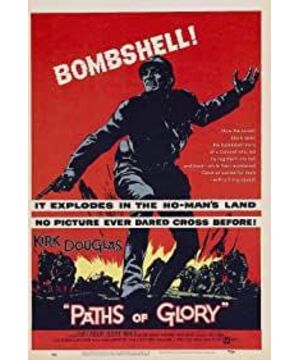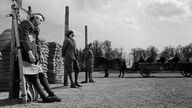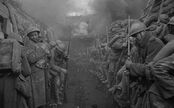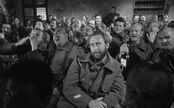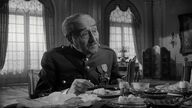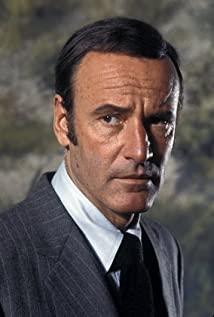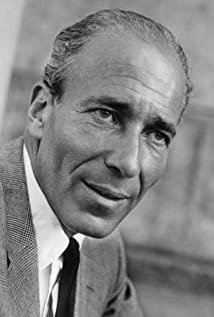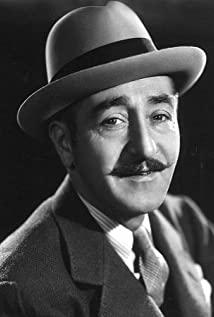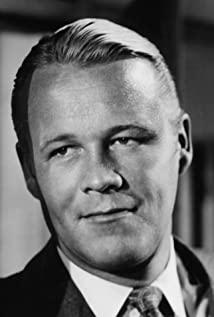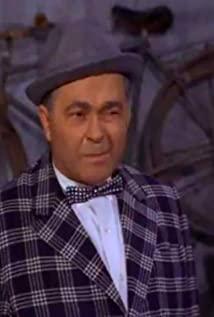In "Paths of Glory," one of the most impressive aphorisms is uttered by the film's hero, the Colonel: "Patriotism is the last refuge of hooligans." Of course, we should never This Boswell dictum is simply understood to mean that people should not act shamelessly in the name of patriotism (which is even less likely to mean that we should not be patriotic), but instead exposes a dialectical "inevitability". ”, that is, why patriotism, taken to its extremes, inevitably presents itself as a rogue’s sanctuary. In other words, it exposes why the most extreme form of patriotism is nationalism, while the so-called "reasonableness" is always the enemy excluded by radical patriots.
This is why the "companion of justice", the colonel, must be the least patriotic in the whole French army, because he is an "idiot" who pursues his pursuit of With humanity and sympathy, he tried to convince people in a military court, and even after driving out the general, he still did not seek fame, so the tragic ending of his final dismissal is natural.
Isn't the command given at the opening of the movie the most typical superego command? Without reinforcements and the enemy's firepower is fierce, a small force is ordered to take down the "ant hill" that is the most difficult to capture. Isn't there an element of lewd pleasure in it? "I know you can't do it. But I'm going to order you to do it!" Isn't an order like this the most secretive part of all political organization? If we say that each of us is destined to carry out the tasks we cannot do under the "lustful" orders of the superego (isn't that the case with the authority of all decrees? We must do it, but we can never find it The meaning behind a "stupid" command that we can only use illusions to bridge the cracks in the Great Other by faith or self-deception), then we are bound to be frustrated and suffer our "traumatic" events. In the film, the trauma of this "reality" is the death of war. Here, Kubrick's approach to shooting is equally noteworthy. We didn't even see the shadow of the German army, the war became "asymmetric" under Kubrick's lens, what we saw was not two armies fighting for noble ideas, but unilateral slaughter, but this Wasn't it his unique insight into war? The initiation of war is a political game between state apparatuses, but the real war is the superposition of two unilateral slaughter. On the incomparably cruel battlefield, the death of the Big Other was completely exposed, and all the ideologies used by the Big Other to drive the soldiers to die were invalid. The soldiers saw through the void of the meaning behind the authority of the Big Other and chose to retreat. Or stay in the trenches.
The exasperated general ordered the artillery battalion to bombard the trenches in order to keep the soldiers moving. Here we should not see the general as the embodiment of the lewd big Other, because he is also the victim of the "superego" directive. It is with him that we are able to see how noble patriotism can be turned into a sanctuary for rascals. Is it true that someone can still keep calm and continue to command after witnessing so many casualties? Isn't this downward inversion of sublime patriotism an illusion created to protect oneself from trauma? In order to be able to continue to carry out the "superego" orders and use the meaningless ideology as his umbrella, we can even say that the general has been psychopathological after receiving the "superego" orders, otherwise how can he be the most proud of himself? What about the soldiers who are discarded as discarded sons at will? It is in order to heal the trauma that there is a pure ideological "patriotism" that has abandoned all noble feelings, and through this escape from the traumatic reality, is completely devoted to the execution of meaningless tasks. And all fanatical ideological patriotic actions seem to be interpreted in this way, under the superego's command, the subject cannot accept his own "traumatic" failure (social, economic, political, erotic, etc...), in order to escape the truth Dedicated to pure ideology, the increase in fanatical ideological servants seems obvious in a contemporary society where the superego's "Enjoy!" mandate has become more complex and impossible to achieve. They don't really understand why they do it, but they give up the independent enjoyment of the subject, and rely entirely on ideological rituals (irrational xenophobia, unreasonable offensive words, etc.) He draws his original joy of being a fully "empathetic" person in the idling of his life.
But the film also presents "honorable" subjects who do not succumb to trauma, Corporal Paris and Colonel. Isn't Corporal Paris' awakening reflected in his fearless gesture of cheering up from crying after his conversation with the executioner? Are the three subjects walking towards the execution ground exactly three different subject attitudes facing absolute trauma—“death”? The weeping Ferol prayed and repented to the "God" of the other, obsessed with finding out the meaning of his death; Arnauld passed out and was unable to face his final moment; and Paris made a choice and accepted the "meaningless". "The truth and bravely went to the end. This is the last and only freedom of the subject. We are helplessly controlled by the superego and fail helplessly, but we can always decide how we face failure. Although it is almost impossible for us to change the outcome, we are always free to decide the subject. symbolic gesture. We can only change the form, but doesn't the change of form retroactively change everything, change the deadlock in one's own life? Isn't this road to execution the "Road of Glory"?
The Colonel is more of a witness, a staunch idealist (but isn't the ideal here more "real" than the so-called "reality" (fame, roles in symbolic order, etc.?). It is impossible to forget the theater at the end of the film, where the soldiers laugh obscenely at the sight of the captured German woman, eager to acquire the title of "French soldier" in a most shameless contempt for the enemy people. The pleasure that the character deserves to be rewarded by the Other. What brought about the transformation was the clear voice of the woman, who sang the German military song "Der Treue Husar (Faithful Hussar)" with tears Rick's meticulous arrangement), while the French soldiers in the audience hummed along one by one, shedding tears that should never have been shed. The tears shed by the girls on the stage and the soldiers in the audience were "true tears" ”, the tears of facing death together and facing the deadlock of unbearable reality. Isn’t this touching scene what the colonel is so desperately looking for? In the face of the common suffering faced by mankind, why should we hate each other and be willing to become What about killing each other as a tool of enjoyment by the Other? "Tears of Reality" is the truth-event that marks the breaking of the illusion, the change of the subject's posture-the subject begins to face the absolute reality in front of him. If this A steadfast gesture of courage to face reality is not honorable, so what else can be called honorable?
To maintain sincere sympathy for the suffering people all over the world, and to maintain absolute acceptance of one's own failures, is it more "honorable" than killing the enemy and making meritorious deeds? If so, you will be able to embark on your own path of glory.
View more about Paths of Glory reviews


